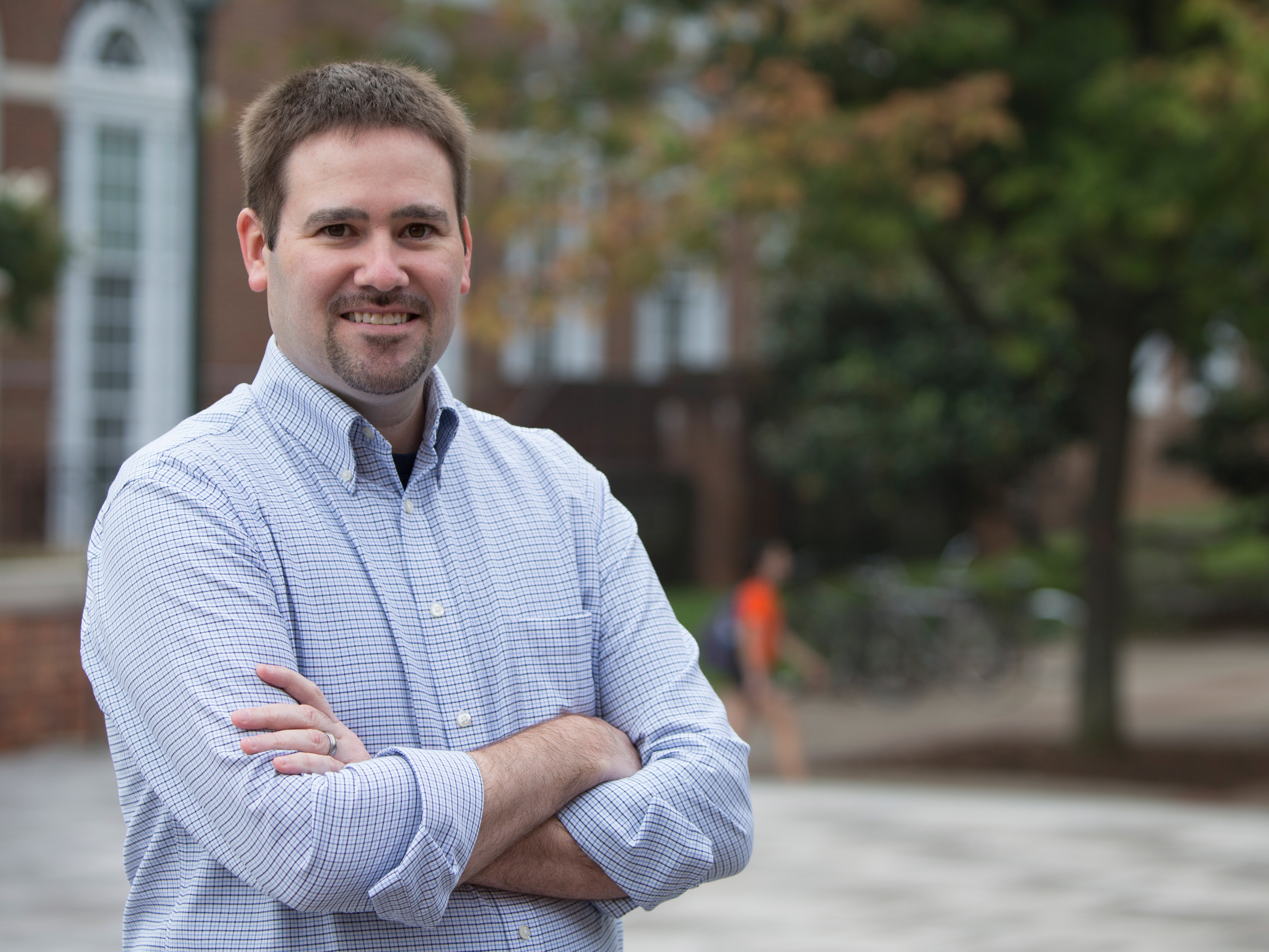Michael Kennedy, an assistant professor in the University of Virginia’s Curry School of Education, has received one of four 2013 early career research awards from the U.S. Department of Education’s Institute of Education Sciences. The award comes with a $400,000 grant to fund a project on the use of multimedia for middle school science and special education teachers. The professional development project will use media-based tools to help address issues in science education for students with disabilities.
Students with physical or mental disabilities tend to be weaker academically than their peers in middle and high school science courses, a consequence of how special education is taught in schools, according to Kennedy.
One limitation of special education arises when students with disabilities are taught in general education classrooms by teachers who are not prepared to teach students with individualized learning needs.
“The methods that those content specialists use to teach are likely to be highly appropriate to teach science, but can be a mismatch for how a student with a disability might learn content,” Kennedy explained.
“Another issue in teaching students with disabilities is that special education teachers are frequently placed alongside general education teachers in the same classroom. This can be problematic, as special educators are prepared to be experts in designing and providing instruction given students’ unique needs, but do not always have a strong grounding in the content area being taught.”
Due to their struggles in elementary and middle school course content, very few students with disabilities go into science, technology, engineering and mathematics, known as the STEM fields.
“Therefore, the purpose of this project is to work alongside science and special education teachers to help both improve their vocabulary instruction in such a way that reflects and honors the intricacies of science, while also providing students with disabilities the type of individualized instruction they need to help keep pace,” Kennedy said.
He first plans to learn from current science and special education teachers to get a better sense of how they are shaping instruction, and why students might be struggling. He then intends to work with his mentors, John Lloyd, professor of special education at the Curry School of Education and Mary Brownell of the University of Florida, a recognized leader in the field of improving the science of professional development for teacher education, to create a professional development plan.
“The professional development I will provide will include new uses of multimedia, such as a special type of podcasting called ‘Content Acquisition Podcasts,’ or CAPs, and a process of homegrown video production,” Kennedy said.
CAPs are short instructional vignettes that will be used by teachers along with their own videos to practice effective vocabulary instruction strategies and use of curriculum-based measures. Teachers will be able to model new evidence-based instructional practices and capture the process on video, so they will have a record of successful teaching.
“This is a twist on how video is generally used during professional development – where teachers either watch someone else model the practice, or they are taped live, and then reflect on the result,” Kennedy noted.
Through his research and implementation of media-based tools, Kennedy hopes to generate an effective process in improving teachers’ content delivery.
“The long-term goal is to produce a professional development process for improving vocabulary instruction that can first help teachers improve, and also result in augmented student performance,” Kennedy said.
Media Contact
Article Information
November 14, 2013
/content/uva-s-kennedy-wins-early-career-research-award-boost-teacher-student-performance-special-ed

